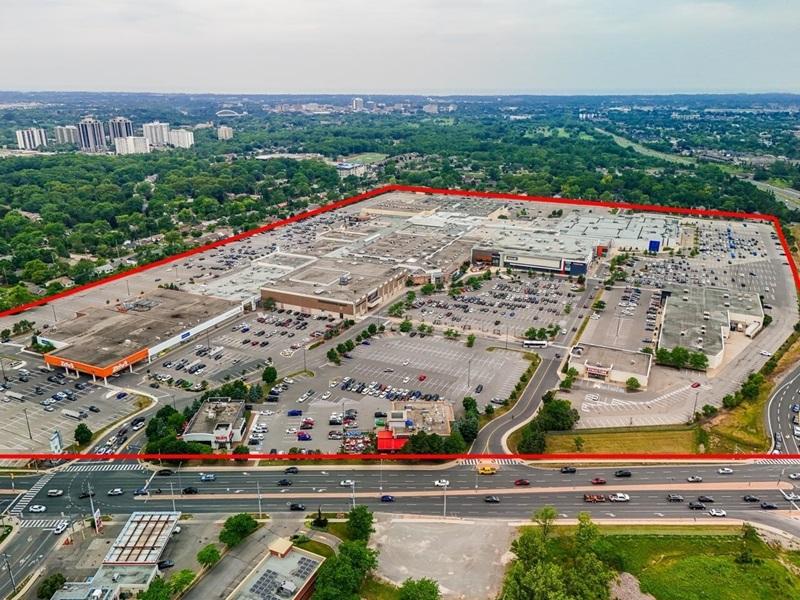
Corrado Russo, Timbercreek’s senior managing director of investments and global head of securities. (Courtesy Timbercreek)
Having a plan with a clear focus and sticking to it continues to pay off for Timbercreek Asset Management’s decade-old Global Real Estate Securities business, which has surpassed $2 billion in assets under management.
The Global Real Estate Securities division made the announcement Tuesday – just two years after hitting $1 billion. During the past 10 years, Global Real Estate Securities has outperformed the industry benchmark thanks to what it calls “amplified interest” in real estate and REITs from institutional investors.
How?
“For better or for worse,” Corrado Russo, Timbercreek’s senior managing director of investments and global head of securities, said the firm’s philosophy has been “focused on developed markets, large urban areas, 24-hour cities around the world.”
They span the globe from New York to Sydney, London to Tokyo, San Francisco to Singapore.
Timbercreek a $10B company
Toronto-based Timbercreek has grown as an active investor, owner and manager of more than $10 billion worth of global real estate and related assets since its founding in 1999. It created Global Real Estate Securities expressly to invest in publicly listed real estate companies which own investment-grade real estate around the world.
Timbercreek’s Global Real Estate Securities business is divided into retail products and institutional products.
This includes the Timbercreek Global Real Estate Income Fund for retail investment, and the Timbercreek Four Quadrant Real Estate Fund for a broader audience. The latter is an integrated real estate solution, managed by Russo, with a component of publicly traded real estate securities, as well as private equity and private debt.
Notable assets for the Global Real Estate Securities team around the world include the Swire Properties’ One Island East in Hong Kong; Mitsui Fudosan’s Gran Tokyo North Tower in Tokyo; Boston Properties’ GM Building in New York City; Dream Global REIT’s Cologne Tower in Cologne, Germany; and MGM Growth Properties’ Mandalay Bay Casino and Resort in Las Vegas.
The emphasis is on providing investors with a proxy for direct bricks-and-mortar ownership by investing in REITs in the world’s “higher-end trophy markets,” providing an income stream alternative to equities and fixed-income assets, Russo said.
Building “steady income streams”
This strategy keeps his team from investing in higher-risk emerging markets or in developers and homebuilders which don’t offer that opportunity for recurring revenue.
“What we are trying to build is steady income streams for our clients that have the ability to grow over the long term with a conservative approach to our capital and to preserve capital,” he said. “That takes you to established and developed markets with proven and long-term aspirations for demand.”
His team works to understand the stability of that demand, and what will continue to drive it through the cyclical ups and downs. They assess what attributes and amenities will support demand and drive growth in rents and margins, such as retail development, employment opportunities and transportation infrastructure.
Last but not least is the price tag – Russo and his team are careful about not overpaying for that growth potential.
In these trophy markets, Timbercreek’s focus has always been on finding gems that, for whatever reason, are under-loved and underpriced, rather than just invest in fully occupied properties and sit on them. The more upside potential the better, whether that is achieved through retrofits and upgrades to the property, improvements to the lease structure or having the property rezoned for a more lucrative use.
“(We) hunt for companies that are mispriced and trading at a discount, based on the value of buildings and what we think about how that value can be enhanced for the future,” Russo said. “This is difficult to price into a stock, which gives you the opportunity to build that value.”
Not limited to traditional opportunities
It may sound like a relatively staid and conservative approach and even more so when Russo speaks with enthusiasm about something like triple net leasing (in which the tenant shoulders most, if not all, of the maintenance and operating costs of the property) as a means of “really getting equity-type returns for bond-like risk.”
However, Russo and his team are not limiting themselves to what might be considered traditional bricks-and-mortar opportunities in commercial, institutional or industrial real estate.
The impending arrival of 5G wireless networks and autonomous automobiles, for example, has Global Real Estate Securities taking a hard look at assets like cell towers and data centres in regions such as the U.S. and Singapore.
“The need for data and the need for redundancies to not have any disruption in the flow of data is more important than it has ever been,” Russo said.
So, having hit $1 billion in AUM in eight years and then $2 billion in only two more, where does his team go from here?
On the global stage, Timbercreek’s Global Real Estate Securities operation still ranks as a “boutique-scale” manager. This allows it to play up the positive aspects of being more agile and nimble than the big guys – an image which has its appeal in many corners of the market.
“I think we are really at the inflection point of our hockey stick curve,” Russo said. “I see more momentum ahead of us.
“We certainly welcome it and we think we are positioned for it.”
Parting thought: Where does Canada fit?
So where does the Canadian market fit into Timbercreek’s Global Real Estate Securities’ focus?
During the global financial crisis, the Canadian market proved more resistant than others and weathered the impact better than most. This led to higher inflows of capital and higher valuations. For Russo, and his team, that means the best opportunities for their investment focus remain abroad.
“I would put Canada in the lower-risk, but also the lower-growth/lower-return category,” Russo said. “Canada obviously positioned itself as a very stable place to be in the global financial crisis . . . but the negative to that is they have less upside going forward.
“We see more limited growth coming out of the Canadian market.”
RELATED ARTICLES:
* Timbercreek plans multi-billion-dollar Ottawa development
* Top 10 real estate transactions in the GTA: 2018
* Timbercreek builds resort-style apartments in South Ottawa
Editor’s Note: This article was updated shortly after publishing to add additional details about the products involved in the Global Real Estate Securities division, and to remove one piece of erroneous information provided to RENX during the interview.







